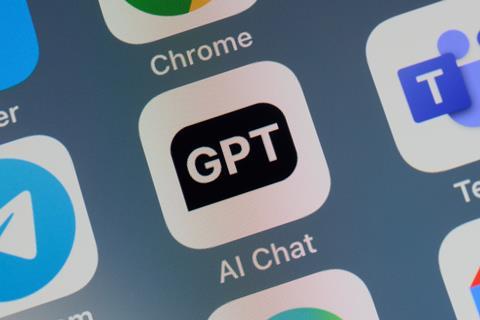The launch of ChatGPT has taken the world by storm, with the platform amassing a user base of more than 100 million since late November last year.


ChatGPT, in its current form, functions as a chatbot designed to address user queries. Its knowledge base is accurate up until 2021, so developments since then are not incorporated into its responses. ChatGPT holds tremendous potential for expediting tasks that are typically resource-intensive and time-consuming. Businesses from all industries are reckoning with how artificial intelligence can optimise their operations, with the legal sector being no different. For example, a generative AI product for use in legal services has recently been released. One area where AI could potentially be used is in disclosure. Currently, ChatGPT can be used for document summarisation, basic legal research and statutory interpretation.
Before ChatGPT can be used as a tool for disclosure, additional measures would need to be implemented to guarantee secure storage, confidentiality, and protection against unauthorised access of uploaded documents by third parties. As it stands, some law firms have prohibited the use of ChatGPT, citing concerns over the potential exposure of sensitive information. However, there is a possibility of integrating an enhanced iteration of ChatGPT into e-disclosure platforms.
Civil litigation has benefited from technology-assisted review (TAR) since 2016. Typically, TAR is trained using documents which then allows it to select potentially relevant documents, reducing the number of irrelevant documents for manual review.
ChatGPT is different to TAR in various ways. First, ChatGPT’s scope of inputs is broader, encompassing sources such as books, articles and websites. In the context of disclosure, this could include pleadings, correspondence, and the entire document collection. While ChatGPT already possesses the ability to summarise documents, it could be fine-tuned to perform specific tasks such as answering targeted questions about document sets – for example, set out the 50 most detrimental documents to our client’s case.

Additionally, ChatGPT has the potential to process a wider range of data types compared to TAR. GPT-4 (the most recent version) can process images, with a future possibility of processing audio recordings and video. These make use of the platform an enticing prospect for streamlining the disclosure process, as it offers the potential to reduce time and costs.
Hypothetically, if ChatGPT can be trained to be more consistently accurate than manual reviewers, then its integration in the disclosure process could have the potential to be revolutionary in terms of speed and precision, particularly in cases concerning extensive disclosure datasets or when faced with tight pre-trial deadlines. By leveraging ChatGPT’s capabilities, more time could be allocated to assessing where documents might be missing, preparing applications as required, and considering the overall strategy. The use of ChatGPT could also potentially mitigate disapproved-of practices in litigation, such as the deliberate disclosure of an extensive volume of data by one party in an attempt to hide damaging documents.
In circumstances where a party cannot rely on ChatGPT to fulfil its disclosure obligations, an alternative solution could involve the disclosing party providing the entire document collection (excluding privileged material) and allowing the receiving party to use ChatGPT to identify the relevant documents. By adopting this approach, the disclosing party would avoid criticism for withholding potentially significant documents or disclosing an excessive number of irrelevant ones, effectively shifting the burden to the receiving party.
The financial implications of incorporating ChatGPT into the disclosure process are not yet determined. If the costs are substantial, firms with larger research and development budgets may gain a competitive edge. Depending on the extent to which these costs are passed on to clients, those firms could offer a comparatively more affordable service, particularly in relation to the costs arising from disclosure.
The adoption of ChatGPT also raises the possibility of disrupting the business model of a disputes firm or department, as the fees generated from the disclosure process often contribute significantly to the overall profitability of such firms or departments.
Practice Direction 57AD provides support for the use of technology in disclosure. It outlines that parties must agree on the use of software or analytical tools, including TAR software and techniques. In principle, it is likely the court would be open to considering tools that enhance litigation efficiency and cost-effectiveness for the involved parties. However, maintaining transparency in the disclosure process is crucial. The court has rejected the use of TAR in cases where parties were unable to explain why it is being used. Currently, ChatGPT does not possess the capacity to explain its predictions, making it unlikely to meet the current transparency requirements. This aspect, along with concerns over confidentiality, must be considered by developers if the platform was to be adapted for use in disclosure.
If these challenges can be successfully addressed, it is likely that the court would be receptive to considering the use of generative AI like ChatGPT. Should its use be approved, new issues would inevitably arise, such as the impact on procedural timelines and the extent to which cost recoverability for disclosure would be permitted when one party has access to the platform while the other does not.
While ChatGPT is not in a position to bring about significant disruptions in the e-disclosure market in its current state, it is easy to see how such disruptions emerge. The realm of disclosure holds immense potential for ChatGPT and other AI models, and we eagerly anticipate the developments that lie ahead.
Rosie Wild is a partner and Anna-Rose Davies an associate at Cooke, Young & Keidan































No comments yet